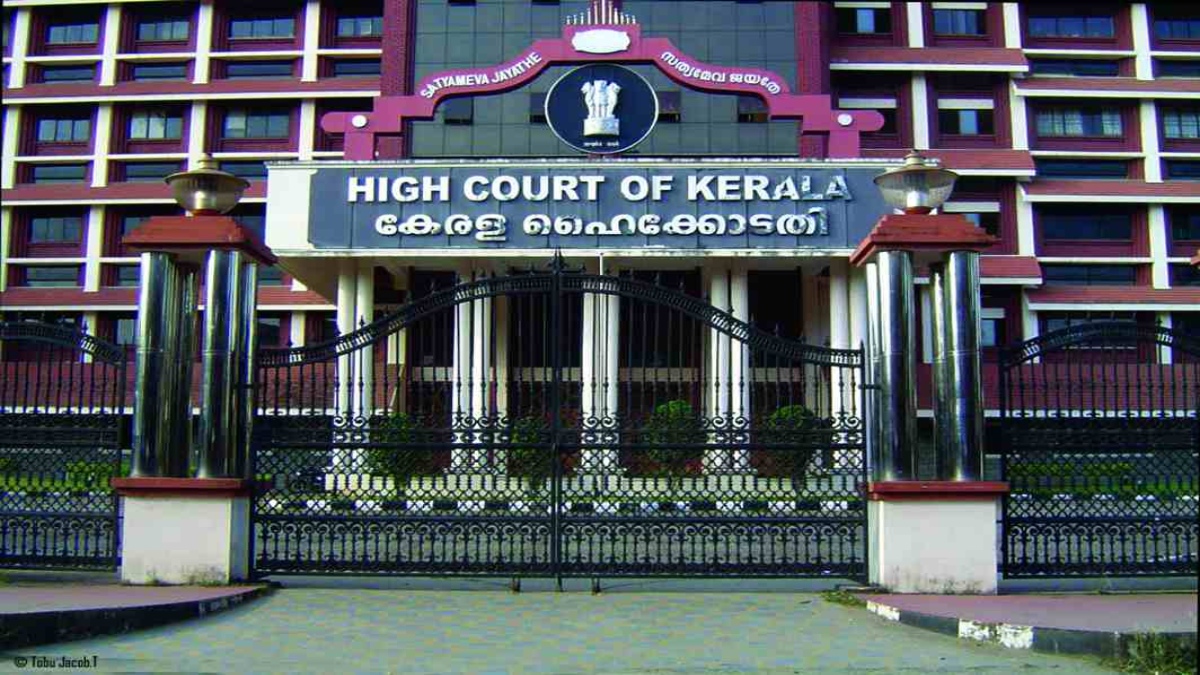While vocally espousing the right to pension as a constitutional right, the Kerala High Court has in an extremely laudable judgment titled Abhilash Kumar R & Ors vs Kerala Books and Publication Society & Ors. in WP (C) No. 11306 of 2015 and connected cases that was pronounced as recently as on August 5, 2022 has held that the right to pension is a constitutional right and that pensions cannot be paid to retired employees merely at the whims and fancies of the employers. The Single Judge Bench of Justice VG Arun minced absolutely no words to hold that, “Pension is no longer a bounty to be paid at the whims and fancies of the employer. On the other hand, pension is deferred salary, akin to property under Article 300A. The right to pension, if not a fundamental right, is definitely a constitutional right. A retired employee cannot be deprived of this right, save by authority of law.” It must be stated here that the Court was adjudicating upon a batch of petitions moved by current and retired employees of the Kerala Books and Publications Society (KBPS), a registered Society wholly owned by the State Government.
At the outset, this brief, brilliant, bold and balanced judgment authored by a Single Judge Bench of Justice VG Arun first and foremost puts forth in para 1 that, “Petitioners are retired employees of the Kerala Books and Publications Society (KBPS). The KBPS is a Society registered under the Travancore-Cochin Literary Scientific and Charitable Societies Registration Act, 1955, wholly owned by the Government of Kerala. The main object of the Society is to print and supply textbooks to the Education Department, its allied institutions and other prescribed authorities for the advancement of general and technical education and reading habits among the general public. The society’s employees were brought under the Employees Provident Fund and Miscellaneous Provisions Act, 1952, from 01.04.1981. The Employees Pension Scheme was also made applicable, after it was launched in the year 1995. While so, the labour unions demanded that the provisions of the Kerala Service Rules should be made applicable to the employees of the Society, as regards their salary and pension. The Government referred the dispute to the Labour Court and an award was passed on 15.03.2005, directing the management of the Society to consider the demand for making the Kerala Service Rules applicable to the workers of KPBS or to convert KPBS as a Government-run-printing Unit under the Education Department, and to take appropriate decision within four months. This resulted in the KPBS appointing a two-men expert Committee for studying and reporting the possibility of implementing a pension scheme for the employees of the Society. Accordingly, the Committee submitted a report, suggesting service based pension under KSR Part III with budgetary support from the Government. After discussing the suggestion in detail, the Government issued G.O. (MS) No.66/11/G.Edn dated 18.05.2011, permitting the Society to give effect to a contributory pension scheme and family pension scheme. Alleging delay on the part of the Society in implementing the Order, W.P.(C) No.19009 of 2012 was filed by two retired employees. Later, the Government issued G.O.(MS) No.194/13/H.Edn dated 18.05.2013, according sanction for implementing a self sustainable and financially viable pension scheme with effect from 01.04.2011, without any liability to the Government. In view of this development, W.P.(C) No.19009 of 2012 was disposed of directing the respondents to take appropriate steps for implementing the decision in Ext.P3 expeditiously. Thereafter, the Government issued G.O.(P) No.588/2014/H.Edn dated 23.07.2014, according sanction for publishing the Kerala Books and Publications Society Employees Contributory Pension and General Provident Fund Regulations, 2014 (‘the Pension Regulations, 2014’). Accordingly, the Pension Regulations, 2014 was notified on 14.08.2014, providing for grant of pension to the employees of the Society. In the meanwhile, the Society, as per it’s order dated 07.06.2014, decided to sanction 25% of pension to the pensioners/family pensioners with effect from June, 2014.”
To put things in perspective, the Bench then envisages in para 2 that, “Even after publication of the Regulations, the eligible pension amount was not disbursed to the retired employees. This resulted in some of the employees filing W.P.(C) No.23055 of 2015, praying for a writ of mandamus, directing respondents 2 to 4 to disburse monthly pension to the retired employees as provided in the Pension Regulations, 2014. In that writ petition, the Society adopted the stand that it does not have the funds for disbursing pension, since the Employees Provident Fund Organisation had refused to refund the contribution remitted to its pension scheme. The Government resolved the stalemate temporarily by issuing G.O.(MS) No.62/16/H.Edn dated 01.03.2016, according sanction to the Society to raise funds for payment of pension from the profit of the KBPS as a one time measure, subject to a maximum of the amount receivable from the EPF account and subject to approval of the governing body. In view of this development, W.P.(C) No.23055 of 2015 was disposed of as per judgment dated 15.03.2016.”
As it turned out, the Bench then enunciates in para 3 that, “W.P.(C) Nos.19570 of 2016, 10438 of 2020 and 29160 of 2020 are filed for a declaration that the petitioners are entitled to get full pension with effect from the date of their retirement, based on the Government orders and in accordance with the Pension Regulations, 2014. W.P.(C) Nos.11306 of 2015 and 22445 of 2017 are filed by employees in service, seeking to quash the Government order notifying the Pension Regulations, 2014 and for a declaration that the petitioners therein are entitled to continue as members of Employees Provident Fund Scheme, the Employees Pension Scheme and the Employees Deposit Linked Insurance Scheme under the Employees Provident Fund and Miscellaneous Provisions Act, 1952. Contempt of Court Case No.1719 of 2021 is filed by one of the petitioners in W.P.(C) No.19009 of 2012, alleging non-compliance with the directions contained in the judgment in that writ petition.”
Be it noted, the Bench then points out in para 9 that, “The following facts are not in dispute.
The Society, after due discussion with the Government, had decided to constitute a two-member committee for conducting enquiry and submitting report regarding the possibility of forming a separate pension fund for its employees. The decision in that regard was taken in the wake of demand from the labour unions, pointing out the huge disparity in salary and pension between Government employees and employees of the Society, despite KBPS being fully owned by the Government. The committee had suggested payment of pension in the manner provided under Part III of KSR. This aspect was also discussed and deliberated upon before the Government granted permission to enforce the Pension Regulations, 2014. The Government order in this regard was duly considered and accepted by this Court as evidenced by the judgment in W.P.(C) No.19009 of 2012.”
Finally and far most significantly, the Bench then holds in para 13 that, “It is pertinent to note that in State of Jharkhand v. Jitendra Kumar Srivastava [(2013) 12 SCC 210], the Apex Court declared the right to receive pension as akin to a right in property. The contextually relevant portion of that judgment reads as under;
“The fact remains that there is an imprimatur to the legal principle that the right to receive pension is recognised as a right in “property”. Article 300-A of the Constitution of India reads as under:
300-A.Persons not to be deprived of property save by authority of law.—No person shall be deprived of his property save by authority of law.
Once we proceed on that premise, the answer to the question posed by us in the beginning of this judgment becomes too obvious. A person cannot be deprived of this pension without the authority of law, which is the constitutional mandate enshrined in Article 300-A of the Constitution. It follows that the attempt of the appellant to take away a part of pension or gratuity or even leave encashment without any statutory provision and under the umbrage of administrative instruction cannot be countenanced.”
The legal position emanating from the above precedents is that, pension is no longer a bounty to be paid at the whims and fancies of the employer. On the other hand, pension is deferred salary, akin to property under Article 300A. The right to pension, if not a fundamental right, is definitely a constitutional right. A retired employee cannot be deprived of this right, save by authority of law. Applying the above principles to the instant case, I have no doubt that, having formulated the pension regulations and having stopped payment of contribution to the EPF pension fund, the society cannot wriggle out of its responsibility by pleading paucity of funds. It is for the society to stimulate the required funds, either from its profit or revenue. The dispute with the EPF Organisation and the delay in receiving back the EPF contribution, are not acceptable as an excuse for non-payment of eligible pension to the retired employees. Based on the above discussion, I find the petitioners in W.P.(C) Nos.19570 of 2016, 10438 of 2020 and 29160 of 2020 to be entitled for the relief sought. As far as the petitioners in W.P.(C) Nos.11306 of 2015 and 22445 of 2017 are concerned, their grievance stands substantially redressed by the issuance of G.O.No.417/2019/H.Edn dated 24.12.2019, which stipulates that the existing regular employees are exempted from the Pension Regulations, 2014 and reinstated to the EPF pension scheme.
The writ petitions are therefore disposed of as under;
(i) The employees superannuated/retired before 24.12.2019 are declared to be entitled for pension in accordance with the Pension Regulations of 2014. They shall be paid full pension with effect from 01.10.2022.
(ii) The arrears of pension due to the above group of employees shall be paid in four stages, viz; 25% of the arrears on or before 01.01.2023, and 25% each on or before 01.04.2023, 01.07.2023 and 01.10.2023.
(iii) The employees in service as on 24.12.2019, like the petitioners in W.P.(C) Nos.11306 of 2015 and 22445 of 2017, shall be governed by the EPF Pension Scheme, as provided in G.O.(MS) No.417/2019 dated 24.12.2019 or the National Pension Scheme, as the case may be.
(iv) The funds necessary for payment of pension and arrears shall be drawn/raised from the society’s profit and revenue.
(v) The Government shall take earnest and sincere efforts to pay the amounts due to the Society for the works executed.
(vi) In view of the directions above, COC No.1719 of 2021 is closed.”
In essence, the Kerala High Court while setting the record straight has made it indubitably clear that pension is a deferred salary akin to property under Article 300A of the Constitution of India. It was also made abundantly clear that pension is no longer a bounty to be paid at the whims and fancies of the employer. The Court also sought to make it clear that the right to pension if not a fundamental right, is definitely a constitutional right. More to the point, the Court held that a retired employee cannot be deprived of this right save by authority of law. No denying it.























